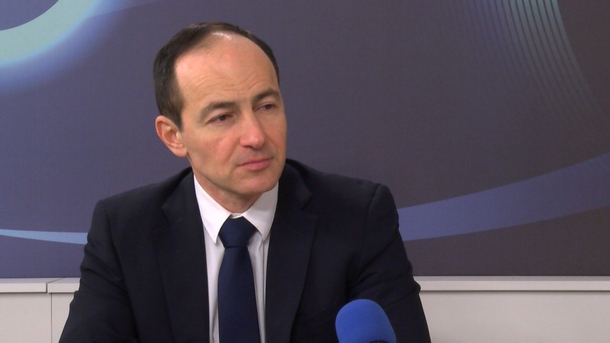The President of the European Parliament Antonio Tajani postponed for next week the discussion and the voting of the contestable Mobility 1 Package in the last moment. Bulgaria, together with many Eastern European countries opposed the abovementioned legislative package. On this occasion Premier Boyko Borissov warned that it was too early to celebrate and called for a full mobilization during the next voting. The protests of haulers held in Sofia and Strasbourg also showed that no satisfactory solution to this issue has been found, but only small steps have been made in the desired direction.
The adoption of the Mobility 1 Package failed during the 4th attempt as well and was returned, in order to comply with all 1,200 amendments proposed at the European Parliament’s Committee on Transport and Tourism. This committee approved only two of the three reports at the last sitting, which made the discussion of the Mobility 1 Package impossible at a plenary session.
Bulgaria has been among the most obedient members of the European Union until now and apart from its demands to receive more EU subsidies and enter the Schengen Area and the Eurozone, it did not set any special requirements to Brussels. Now it opposed openly a draft decision for the first time. Why the Bulgarian haulers do not approve the so-called Mobility 1 package, also known as Macron Package? Some EU members such as France and Germany are worried by the competition of companies from EU members, where transport costs are lower. They insist that the status of posted workers is applied in international transport as well, i.e. drivers have to be paid according to the labor conditions of a given country. According to the new text, drivers must spend their weekly rest outside their cabins-in a hotel for instance. They must return to their home country at least once in four weeks. The abovementioned conditions cannot be met by Bulgarian companies and other “periphery” countries and only the most powerful transport companies from Western Europe are able to meet these requirements. The small transport companies from Eastern Europe do not have the necessary financial resource to apply such regulations. According to the Union of International Haulers, this is a mere economic war led with diplomatic means.
Bulgaria’s MEP Svetoslav Malinov commented that the Mobility 1 Package is decent as a whole, but it contains special regulations against the Bulgarian haulers. The new working conditions are better for truck drivers from Western Europe only. However, the salaries of their colleagues from Eastern Europe will be significantly lower, if they start observing the new regulation. As a result, the number of drivers from Eastern European countries will fall or their employers will have to make some of them redundant. At least 200,000 people in Bulgaria will be affected by the new Mobility Package.
Bulgaria and the other Eastern European countries which oppose the Macron Package are aware that they are unable to entirely reject the contestable package of measures, but at least they want some compromises that will be in their interest. Here is what Bulgaria’s MEP Andrey Kovatchev told Radio Bulgaria:
 The situation will be much more normal if the details and the content of all articles of the directive are discussed in a calm and normal atmosphere and in a new European Parliament which receives new mandate by the citizens of the EU. That is why I believe that the current European Parliament should not make such a decision. Many issues have been already resolved and the countries have their position on this topic, but I will repeat that we should wait for the election of new MEPs and then make the final decision, Andrey Kovatchev went on to say.
The situation will be much more normal if the details and the content of all articles of the directive are discussed in a calm and normal atmosphere and in a new European Parliament which receives new mandate by the citizens of the EU. That is why I believe that the current European Parliament should not make such a decision. Many issues have been already resolved and the countries have their position on this topic, but I will repeat that we should wait for the election of new MEPs and then make the final decision, Andrey Kovatchev went on to say.
The Bulgarian authorities, including the Minister of Transport, Information Technology and Communications Rosen Zhelyazkov categorically support the demands of the transport and shipping companies and do not rule out the possibility to approach the European Union Court of Justice if necessary. They believe that they have gained tactical advantage, but have not won the transport war yet.
English version: Kostadin Atanasov
Photos: BGNESBulgaria’s National Assembly rejected President Rumen Radev’s veto on the amendments that expand the powers of the special commercial administrator of Lukoil, reported BNR’s correspondent Maria Fileva. The MPs from the ruling majority, supported by..
President Rumen Radev has vetoed the legislative amendments related to the appointment of a special commercial administrator in the Lukoil refinery in Burgas. The head of state said that the amendments undermine the legal order in..
Convulsions Before Multipolarity — a Time When Illusions Are Sacred and Truth Is Heresy is the title of a new book that will be officially presented in early November in Sofia. It explores the agony of a unipolar world, an era of geopolitical..

+359 2 9336 661
